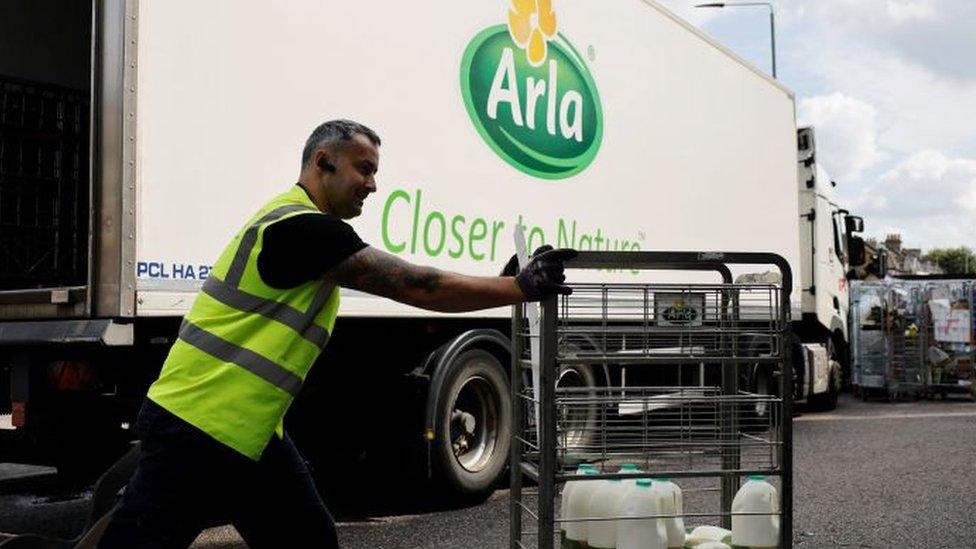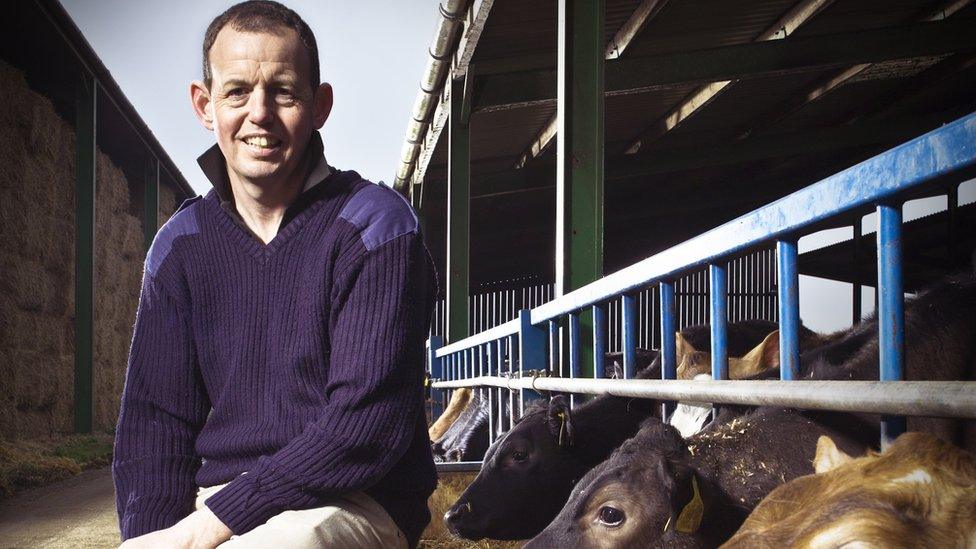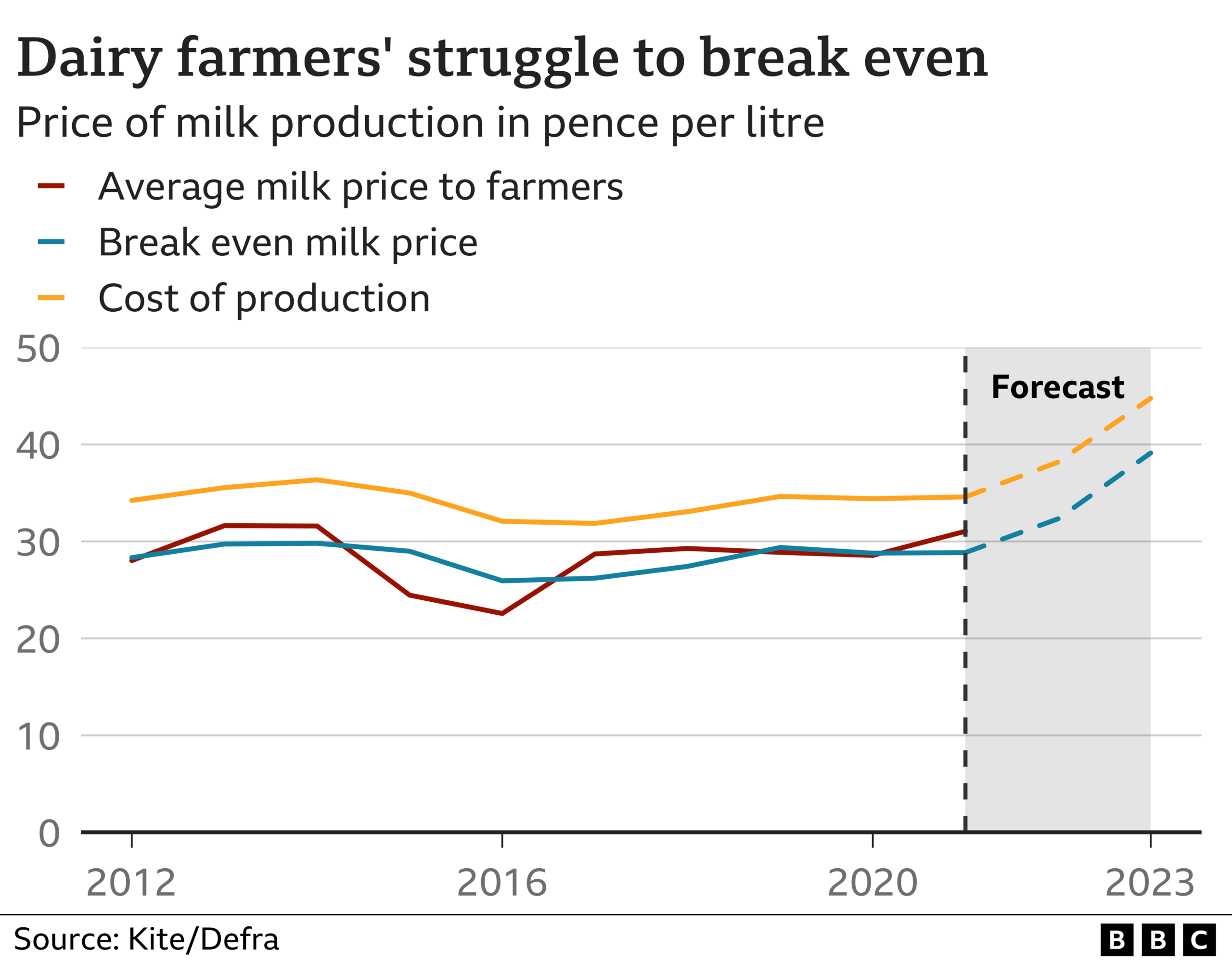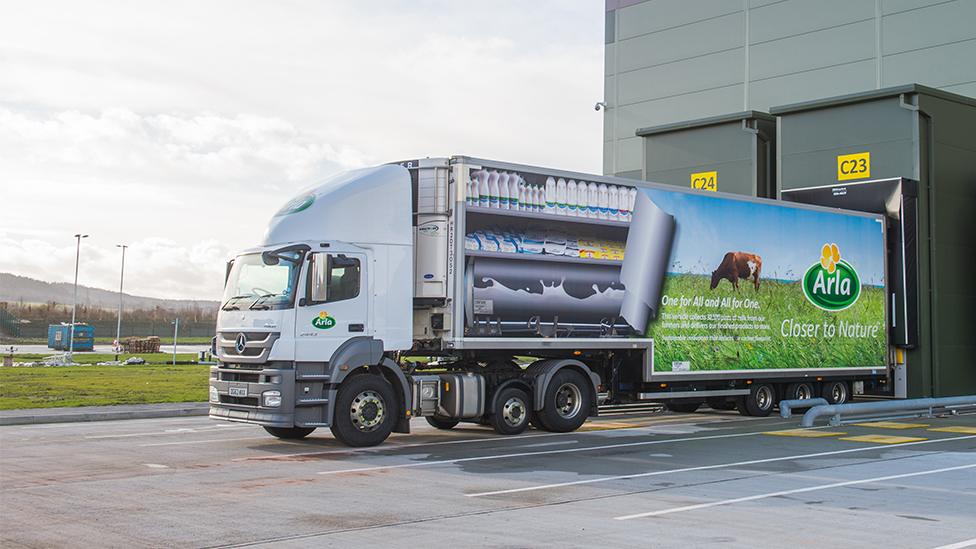Dairy giant Arla warns of supply issues unless farmers paid more
- Published
- comments

The UK's largest dairy has warned milk supplies could be under threat unless its farmers are paid more.
The managing director of Arla Foods said costs are increasing at rates never seen before and that farmers can no longer cover their expenses.
"Because of the recent crisis, feed, fuel and fertiliser have rocketed and therefore cashflow on the farm is negative," said Ash Amirahmadi.
He added farmers are producing less milk as a result of the higher costs.
"UK dairy farmers have been producing more for about the last seven to eight years but it's now going the other way," Mr Amirahmadi told the BBC.
"In February, they produced 2% less and in March it's 4%."
With cost increases of some 36%, he warned farmers are facing some hard decisions and that they need confidence to carry on producing.
And that means securing a higher price from Arla's customers - the supermarkets.
"The most important thing now is that we put our arm around the farmers…and pay our farmers more to cover their costs to make sure the milk is flowing, " said Mr Amirahmadi.
Arla Foods is the fifth biggest dairy company in the world and the largest supplier of fresh milk and cream in the UK. The co-operative has 2,100 dairy farmers in the UK and 8,950 across Europe.

David Christensen is an Arla dairy farmer based in Oxfordshire
David Christensen, an Arla dairy farmer based in Oxfordshire, said he had "never experienced conditions like this in 30 years" of working in the industry.
His fertiliser bill has jumped from £350 to £900 a tonne and his fuel has more than doubled - cost increases he won't be able to absorb after the summer.
"There's no doubt, if the economics don't stack up one of the options is to scale back production...milk prices need to go up. It's no longer sustainable," he said.
The boss of Arla said the price of milk in the shops is 7% lower now than it was 10 years ago.
But the price consumers pay is different to the prices which farmers receive to produce it.

For farmers the break even price is key. This includes any extra income and government subsidies.
Over the years, the industry has kept costs down by becoming more efficient and many supermarkets have direct contracts with farmers based on their own cost of production models to try to give them a fairer deal.
But industry sources have said even these so-called aligned contracts are failing to keep up with sky rocketing costs.
Mr Amirahmadi's comments come as his business unveiled a five-year plan to grow and future proof the business at the same time it faces pressure from surges in inflation.
Arla believes increasing global demand for dairy is an opportunity for farmers in the UK. The prices paid to farmers abroad are now 15% higher than the prices paid to farmers here.
It's already trialling the export of fresh British milk for processing at its European sites which is then sold on international markets.
The dairy giant is the first producer to consider doing this at scale.
"The good news here for farmers and actually the British dairy industry is that the opportunities of export give farmers more options and therefore it means that the whole of the UK dairy industry should get a lift as a result of those markets," Mr Amirahmadi said.
As for the UK, he believes the dynamics need to change. He said for too many years the liquid milk market has been failing to deliver for farmers.
"Over the next five years we will have to make some tough decisions about where our milk goes to ensure farmers can cover their costs and continue to invest in reducing their on-farm emissions," he added.
"The profitability of some of our milk contracts will need to increase significantly when up for renewal in order to compete with more attractive business opportunities that are opening up."
Related topics
- Published30 July 2021
